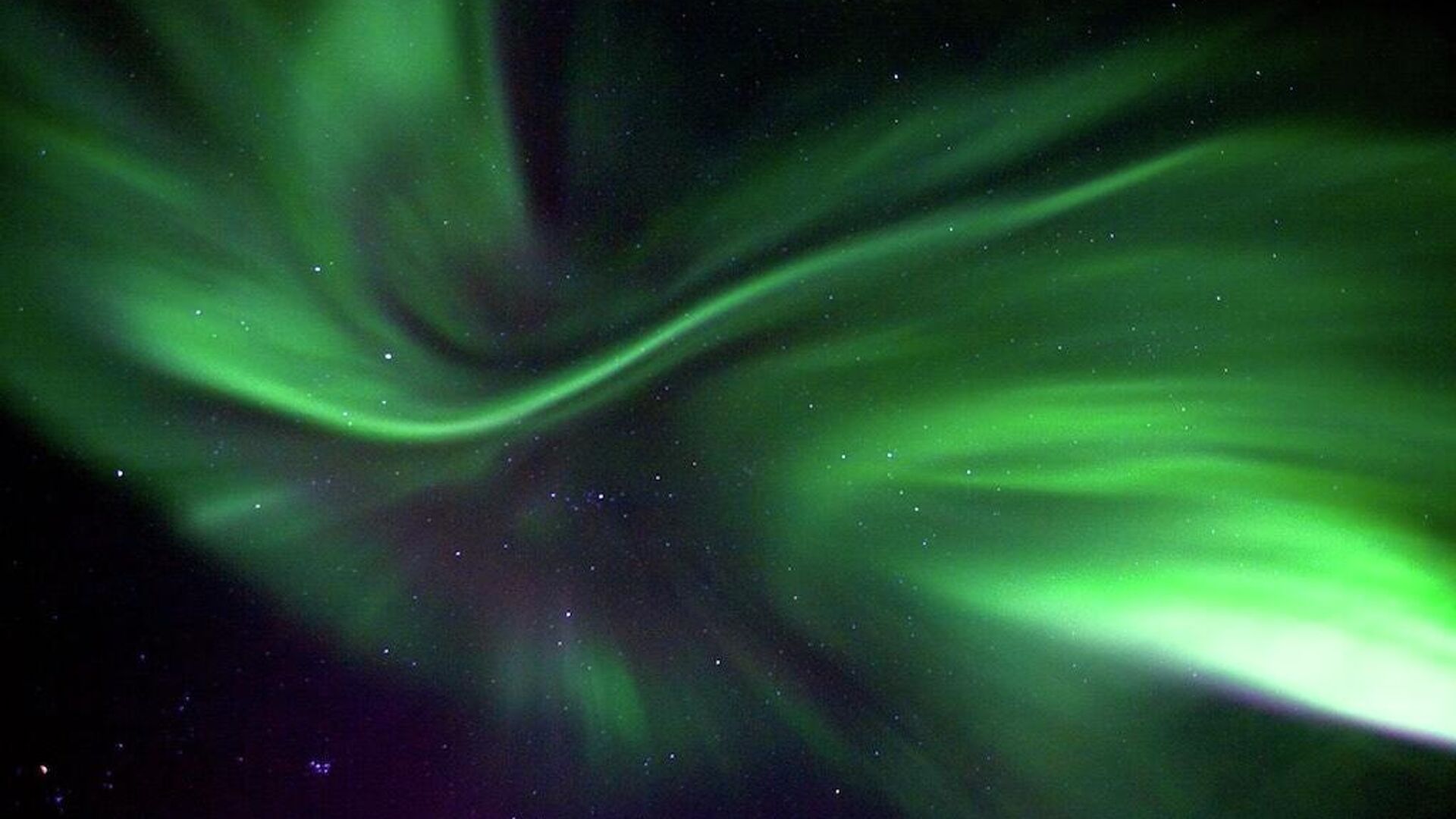https://sputnikglobe.com/20220521/heres-why-mars-has-auroras-despite-lacking-global-magnetic-field-1095691164.html
Here's Why Mars Has Auroras Despite Lacking Global Magnetic Field
Here's Why Mars Has Auroras Despite Lacking Global Magnetic Field
Sputnik International
An aurora, also commonly known as polar lights, is a natural phenomena that occurs when solar wind disturbs the magnetosphere of Earth - or any other celestial... 21.05.2022, Sputnik International
2022-05-21T18:23+0000
2022-05-21T18:23+0000
2023-04-12T16:57+0000
science & tech
aurora borealis
magnetic fields
mars
space
https://cdn1.img.sputnikglobe.com/img/07e6/05/15/1095691139_0:54:1025:630_1920x0_80_0_0_2584020276ff6edba0447189c76e967b.jpg
Mars does not have a global magnetic field, so how can it host auroras? Scientists have finally found the answer thanks to ultraviolet images from the red planet at night.It seems that the lack of Mars' global magnetism does not prevent polar lights from igniting near the regions with small, localised crustal magnetic fields. Such regions are particularly frequent in the southern hemisphere, and as they interact with the solar wind, various patches of Mars' surface are illuminated with auroras.The team has also analysed data from the Mars Atmosphere and Volatile Evolution (MAVEN) spacecraft that is equipped with the Solar Wind Ion Analyzer. The findings indicated that Mars' auroras are also affected by the solar wind conditions: they seem to play a significant role in the auroras' frequency, but not impact their brightness.According to the team, the new findings shed light on how auroras occur on celestial bodies that do not have a global magnetic field. Aside from Earth, polar lights can be sparked on many other planets, satellites and even comets. For instance, Jupiter and Saturn have even stronger magnetic fields than our home planet, therefore they host auroras frequently.
mars
Sputnik International
feedback@sputniknews.com
+74956456601
MIA „Rossiya Segodnya“
2022
Sputnik International
feedback@sputniknews.com
+74956456601
MIA „Rossiya Segodnya“
News
en_EN
Sputnik International
feedback@sputniknews.com
+74956456601
MIA „Rossiya Segodnya“
Sputnik International
feedback@sputniknews.com
+74956456601
MIA „Rossiya Segodnya“
science & tech, aurora borealis, magnetic fields, mars, space
science & tech, aurora borealis, magnetic fields, mars, space
Here's Why Mars Has Auroras Despite Lacking Global Magnetic Field
18:23 GMT 21.05.2022 (Updated: 16:57 GMT 12.04.2023) An aurora, also commonly known as polar lights, is a natural phenomena that occurs when solar wind disturbs the magnetosphere of Earth - or any other celestial body that has magnetism. But what about the planets that don't have it?
Mars does not have a global magnetic field, so how can it host auroras? Scientists have finally found the answer thanks to ultraviolet images from the red planet at night.
It seems that the lack of Mars' global magnetism does not prevent polar lights from igniting near the regions with small, localised crustal magnetic fields. Such regions are particularly frequent in the southern hemisphere, and as they interact with the solar wind, various patches of Mars' surface are illuminated with auroras.
"Our main finding is that inside the strong crustal field region, the aurora occurrence rate depends mostly on the orientation of the solar wind magnetic field, while outside the strong crustal field region, the occurrence rate depends mostly on the solar wind dynamic pressure," explained physicist and astronomer Zachary Girazian of the
University of Iowa.
The team has also analysed data from the Mars Atmosphere and Volatile Evolution (MAVEN) spacecraft that is equipped with the Solar Wind Ion Analyzer. The findings indicated that Mars' auroras are also affected by the solar wind conditions: they seem to play a significant role in the auroras' frequency, but not impact their brightness.
“Now is a very fruitful and exciting time for researching aurora at Mars. The database of discrete aurora observations we have from MAVEN is the first of its kind, allowing us to understand basic features of the aurora for the first time,” Girazian says.
According to the team, the new findings shed light on how auroras occur on celestial bodies that do not have a global magnetic field. Aside from Earth, polar lights can be sparked on many other planets, satellites and even comets. For instance, Jupiter and Saturn have even stronger magnetic fields than our home planet, therefore they host auroras frequently.

